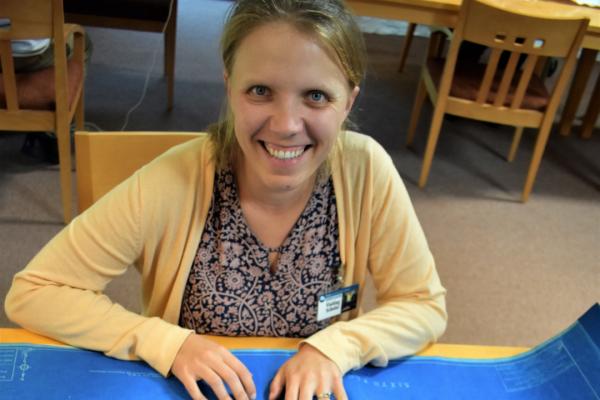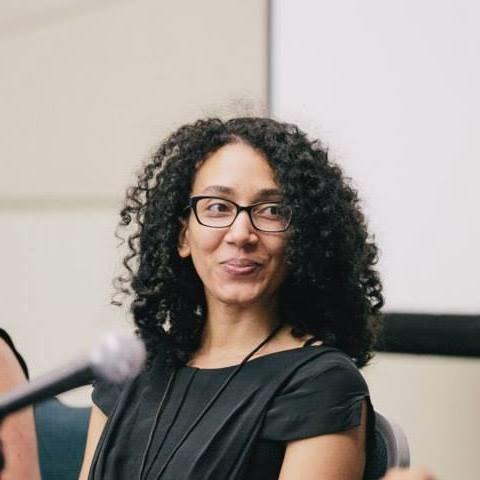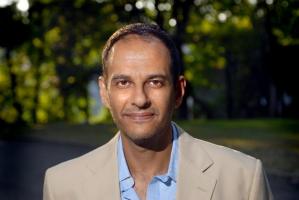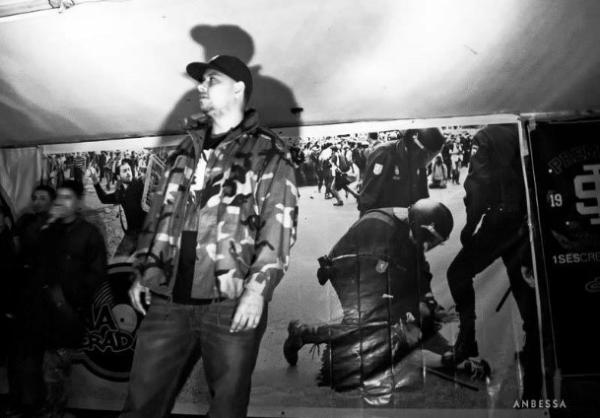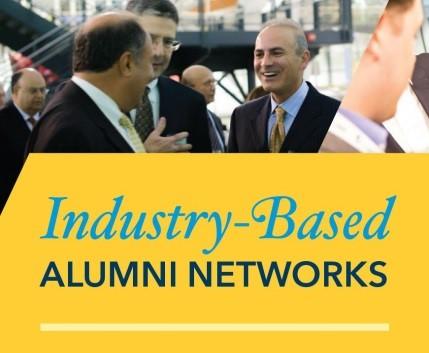Department News, Fall 2017
Message from the Chair
Department Spotlights
Department Announcements
Alumni Updates/Class Notes
Donor Recognition
Support the Department
Stay Connected
Message from the Chair
Department Chair Professor Gayle Wald
Dear AMST Alumni and Friends of the Department:
It would be an understatement to say this has been a busy fall in American Studies. In addition to our regular activities, in the last two months we have welcomed six speakers and co-hosted a celebration of the life and work of Emeritus Professor James O. Horton.
American Studies was one of two groups to win funding last spring from the provost’s office and the CCAS dean’s office to organize an inaugural humanities seminar organized around the theme, “#Resist! Envisioning Justice Together.” This fall, we were delighted to host Professor Moustafa Bayoumi, an award-winning writer and English professor, to talk about contemporary Islamophobia in the United States. In October, we were treated to a performance by Luis Díaz, a Puerto Rican hip hop artist and activist. Our terrific office manager Mona Azadi worked to get Díaz to D.C. from San Juan despite the devastation caused by Hurricane Maria.
We’ve also been hosting talks in a lecture series, “Black Studies Now!,” which is meant to highlight trends in the field, particularly as they relate to American Studies. An impressive group of scholars presented cutting-edge work on black studies and medicine, black fine arts and slavery and finance. This series has been a unifying intellectual experience for our graduate students and faculty.
Most importantly, along with the National Museum of African American History and Culture (NMAAHC) and the National Park Service, American Studies co-hosted a celebration of the life and work of James Oliver Horton. More than 100 people came out to hear Jim’s distinguished colleagues and friends reflect on what made him such a profoundly influential figure in American Studies and to see a lovely slide show with music compiled by MA student Jason Michalek.
Jim Horton was an ardent believer in the power of knowledge of American history and American culture to elevate and sharpen our national conversation. He proselytized his notion of the African American story as central to the American story. Although he was not personally able to enjoy the opening of the NMAAHC, that institution—and its runaway success in attracting visitors—are part of his legacy. So many of you signaled your appreciation of Jim by contributing to the department’s Horton-Vlach fund, which supports undergraduate research.
It’s in the spirit of Jim Horton’s work that I wish our extended American Studies network peace this season and beyond.
Gayle Wald
Department Chair
Department Spotlights
Sophomore Colloquium Delves into Nature, Culture of Children
In the new Sophomore Colloquium called The Nature and Culture of Children, students are asked to imagine children as miniature scientists. After all, what is an infant’s cry but a mini-experiment to obtain a milk bottle or a fresh diaper? The louder the wail, the faster the result. And for Professor of American Studies Jamie Cohen-Cole, the class itself is a laboratory of sorts, as he works with students to refine his own theories on the confluence of science and culture. “The students are part of my research because they help me test how to present the material,” he said. “We are all, in a sense, learning as we go along.
The Nature and Culture of Children is one of several new courses offered through the Sophomore Colloquium series launched last year by Columbian College. "Similar to our Dean’s Seminars for freshmen, these colloquia allow students to take a course that focuses on a topic in the professor's area of expertise within a small classroom setting,” said CCAS Associate Dean for Undergraduate Studies Elizabeth Chacko. “Students have greater interaction with their professor, are able to delve deep into a subject and have the opportunity to begin honing their research skills.”
Read the entire article in the CCAS Spotlight newsmagazine.
|
In the Sophomore Colloquium on the nature of children, Professor Jamie Cohen-Cole works side-by-side with a small group of students to explore, in depth, the confluence of science and culture. |
Meet a PhD Student
George Ramirez
Our graduate students are incredibly talented, with interests that range from Latinx studies and the African diaspora to Yoruba spirituality and the socialization of children. As part of our ongoing efforts to showcase our students, we have been conducting a series of interviews with the newest members of our AMST community.
Q: Why did you decide to study American Studies?We’re happy to introduce George Ramirez, an American Studies PhD student in his first semester here at GW.
George: Given my interest in Latinx studies, performance studies, and media studies, it only made sense to take advantage of such an interdisciplinary field like American Studies. All my favorite classes as an undergrad were cross-listed as American Studies, so when it came time to thinking about the best program for me, it made sense to approach my research through this field! American Studies allows me to practice different methods while learning new ones I could also use.
Q: How did studying physics help or influence your American Studies research?
George: The more I studied physics, the more I learned that philosophical assumptions, forces in society, and cultural values of particular times led scientists to ask the questions they ask and settle for the questions they created, which led me to culture and ethnic studies. However, the best part about majoring in physics is learning how to problem-solve. Media studies requires a lot of analysis, but the influence of technology requires an understanding of how electricity, circuits and networking works as a science. In other words, studying physics has helped add another approach to study the performance of Latinidad through new media. Physics has helped (and hopefully will continue to help) me think about how the science of new media can help us understand why it's such an accessible virtual space for people to express themselves!
Q: What are you focusing on in American Studies?
George: My research hopes to elucidate the production and representation of Latinidad, a broad cultural category, and the ways people contest and integrate what it means to be Latinx through new media. I want to illuminate an undervalued and understudied performativity of Latinidad through the study of Latinx-oriented social media.
Q: What's your favorite place in D.C.?
George: I haven't had too much time to explore D.C. yet, but my walks to the National Mall still haven't gotten old. It's so vast and beautiful!
Q: What are your career goals?
George: My dream is to become an activist-scholar and researcher. As an aspiring university professor, it is my goal to create bodies of knowledge that will empower students of color and further decolonize the academic spaces that we inhabit.
Q: What's a fun fact about you?
George: I'm a huge Bruce Springsteen fan!
Graduate Research Update: Vyta Baselice
PhD student Vyta Baselice
I received Kasch summer funding to conduct research on tabby architecture in Georgia and Florida. Tabby is an early form of concrete, introduced to the North American continent by early Spanish and English colonists and later employed by slaves to construct utilitarian buildings.
The material production process was exceedingly labor-intensive and involved collecting oyster shells, burning them to high temperatures to extract lime, crushing and then mixing them with sand, water and more oyster shells. According to some estimates, producing tabby was one of the most labor-intensive tasks slaves had to perform, consuming as much as 30 percent of their work-week. I visited scores of tabby ruins and historic sites to learn about the material production and construction process. This experience helped me expand my thinking about modern concrete and its roots in tabby. My dissertation will challenge conventional narratives and presentations of concrete as an inherently modern and scientific medium. Instead, I will use tabby to argue that the history of concrete is significantly more complex, reflecting intersecting histories of race, gender and labor.
The funding also supported my trip to experience and photograph conceptual artist Beverly Buchanan's 1981 tabby installation in Brunswick, Ga. Her artwork provides insight into ways 20th century black artists employed concrete and tabby to experiment with material expressions of historical trauma and legacies of slavery. I used this research as the foundation for my conference presentations on Beverly Buchanan's work and the broader history of vernacular concrete in the United States. I presented this material at the American Studies Association conference in Chicago and will formulate another paper for a conference on art and work at Northwestern University in spring 2018.
Click here to read more graduate student research updates!
Dean's Lecture Series: Black Studies Now
In September, the Department of American Studies, thanks to generous funding from the Columbian College of Arts and Sciences, launched a Dean’s Lecture series on the theme “Black Studies Now.” Scholars at the forefront of black studies were invited to GW to share their research and speak on the state of the field as it relates to American Studies. Click on each photo to learn more about the topics discussed, from the brown jouissance, to enslaved women’s representational labor in the clinic, and the afterlife of slavery.
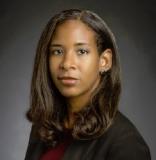 |
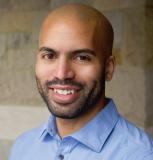 |
Department Announcements
FACULTY KUDOS
Jamie Cohen-Cole gave a paper “Algorithms and Ambiguity: Models and Cases in the History of the Cognitive Sciences” at the Conference on The Intelligence of Algorithms, Max Planck Institute for History of Science, October 2017.
Tom Guglielmo gave a talk—"Mustering a Military in Black and White: America's World War II Draft and the Making and Meaning of Race"—at the University of Illinois-Chicago's Institute for Research on Race and Public Policy in September. He also has an article coming out in the March 2018 issue of the Journal of American History, titled “A Martial Freedom Movement: Black GIs’ Political Struggles during World War II."
Melani McAlister published an article in a special issue of the Journal of American Studies, on "Exploring the Global History of American Evangelicalism" in the November 2017 edition. The articles in the issue are produced by a collaborative group of scholars based in Europe and the US who have been working and talking together for several years. Her article is "The Global Conscience of American Evangelicalism: Internationalism and Social Concern in the 1970s and Beyond." She has also received a National Endowment for the Humanities for 2017-18.
Dara Orenstein presented a paper at the Hagley Museum and Library, at a conference titled "Hidden Capitalism: Beyond, Below, and Outside the Visible Market."
Gayle Wald interviewed NPR pop music critic Ann Powers about her new book, Good Booty: Love and Sex, Black and White, Body and Soul in American Music. You can read more about their conversation at the GW Hatchet.
CURRENT STUDENTS
Sara Awartani, PhD candidate, traveled to Chicago in November where she participated in two invited panels, both of which were based on her recently published article in Radical History Review. The first lecture, held at Batey Urbano in the heart of Chicago's Puerto Rican community, centered around discussions of Puerto Rican nationalism, identity, and resistance and was attended by a diverse crowd of scholars, activists, and community members. She was also invited to discuss her dissertation research with José López's undergraduate Puerto Rican history class and the Union for Puerto Rican Students at the University of Illinois at Chicago.
Vyta Baselice presented “Making the Material Self: Beverly Buchanan’s Concrete Installations in Georgia. ” at the 2017 American Studies Association Conference. She also presented “The National Showroom: Marketing Concrete Construction in Washington, DC, 1950-70” at the Latrobe Chapter Society of Architectural Historians Conference in October 2017.
Thomas Dolan won an award from the Dr. Philip M Kayal Fund for Arab American Research. He presented a paper at the American Studies Association Conference titled “Empty Space: Unsettling Empire in Arab Detroit” as well as “Expertise and Authority: Contesting Journalistic Priorities in the Arab World” at the Arab German Young Academy of Science and Humanities conference in cooperation with the Goethe-Institute Kairo. Thomas is currently in residence at the Doha Institute.
Rebekah Turnmire presented a paper at the 4th annual African Americans in Western North Carolina Conference at the University of North Carolina Asheville in October.
DEPARTMENT EVENTS
Inaugural GW Arts & Humanities Series: #Resist! Envisioning Justice Together
Thanks to the generosity of the provost’s and CCAS dean’s offices, American Studies co-hosted the inaugural GW Arts and Humanities seminar series, titled “#Resist! Envisioning Justice Together.” Organized around four seminars (two in the fall, two in the spring), this lecture series brings together humanities scholars at the forefront of thinking about social justice in the contemporary era.
The series kicked off in September with a lecture from Professor Moustafa Bayoumi, on Islamophobia. Bayoumi’s lecture addressed what it means to exist at the crossroads of Muslim faith and American life. Bayoumi is the author of the critically acclaimed How Does it Feel To Be a Problem? Being Young and Arab in America (Penguin), which won an American Book Award and the Arab American Book Award for non-fiction.
In the second seminar of the series, Luis Diaz, MC for the Puerto Rican underground hip-hop group Intifada, focused on Black/Latinx Politics of Freedom. Diaz, a historian, teacher and long-time activist for Puerto Rican independence, performed his music—grounded in the African Diasporic roots of hip-hop. With his performance of 10 original pieces, the Intifada member discussed topics from race and wealth to bureaucrats and genocide. Afterwards, he addressed the audience with a question and answer session on the current political state in Puerto Rico, the role of revolutionary groups there, and the need to create art in any space regardless of who listens.
|
Moustafa Bayoumi, Professor of English at Brooklyn College, CUNY |
Luis Díaz, historian, teacher, activist, and member of the underground hip-hop duo Intifada |
Alumni Updates/Class Notes
Cliff Andersson, BA ’84, went the financial route and is a financial advisor in Baltimore, Md. He has been with Bank of America/Merrill Lynch since 1990.
Rebekah Beaulieu, BA ’03, completed her PhD in American and New England studies at Boston University. She also published her first book, Financial Fundamentals for Historic House Museums, with Rowman & Littlefield Press in 2017.
Jean Bernard, BA ’70, retired after 30 years of freelance copy editing. She has enjoyed much travel, including Vietnam and Cambodia in January 2018. She has an adorable 2-year-old grandson living in Manhattan with her daughter and son-in-law.
Eric Darnell, BA ’16, moved to Los Angeles, Calif., to pursue a career in entertainment after graduation. He is currently a music assistant at Creative Artists Agency.
Anthony DiPaolo, BA ’80, is living and working in the Boston area running a retail company. He also sits on two boards of directors, one for an art center the other for a fashion company in L.A.
Julie Elman, PhD ’09, is currently in her sixth year as assistant professor of women's & gender studies at the University of Missouri. She recently won MU's highest award for junior faculty teaching excellence. Her research also appears in Disability Media Studies (NYUP, 2017).
Ramzi Fawaz, PhD ’12, received the joint award for the 2017 Association for the Studies of the Arts of the Present (ASAP) Book Prize for his book The New Mutants (New York University Press).
Mark Kates, BA ’82, continues to operate as a music manager at his company Fenway Recordings based in Boston. Recently his biggest clients MGMT launched their fourth album cycle.
Kalie Kelman, BA ’10, recently moved to New York City after spending two years at a venture-backed, high-growth start up in Phoenix, Ariz. She is currently managing operations for mllnnl, an advertising agency specializing in paid social media marketing.
C. Robert Kemble, PhD ’67, has had three careers in his 92 years: 1) Military: WWII USMA & Army commands. This morphed into higher ed work: West Point faculty (American Studies programs); author; 10 year president of Lamar U. He served as a NM Cabinet Secty; still active in Albuquerque.
Michael La Place, BA ’85, is a proud colonial. He is the director of planning and economic development for Passaic County, N.J. He received both his BA and a master’s degree in urban and regional planning from GW.
Scott Larson, PhD ’17, is a lecturer and undergraduate advisor in the Department of American Studies at the University of Michigan, Ann Arbor.
Graham Long, BA ’05, has returned to Washington, working for freshman New York Representative Tom Suozzi. He is assisting with infrastructure, housing, small business and LGBTQ issues, among other responsibilities.
Joseph Malherek, PhD ’15, is the 2017-18 Fulbright-Botstiber Visiting Professor of Austrian-American Studies at the University of Vienna.
Robert Michaels, BA ’74, was elected the chairman of the Board of Trustees of the Housing Partnership of Northern New Jersey. The Housing Partnership is a NeighborWorks-chartered nonprofit that provides first time homebuyer education and foreclosure prevention counseling.
Jason Michálek, MA ’17, has been busy applying to PhD programs since obtaining his master’s to continue studying cyberculture. He is currently applying the skills he developed to work as a freelance researcher and consultant for various public sector industries in the DMV.
Michael Miller, MA ’91, is as a psychotherapist. “Knowledge of culture aids in this task immensely!”
Eid Mohamed, MA, PhD ’11, is currently based in Doha as an assistant professor of American studies and comparative literature. Together with Dr. Melani McAlister, Eid is organizing a major international conference on American studies in Doha in January 2018.
Elizabeth Natsios, MA ’07, serves on the (architectural) Design Review Board for the City of College Station, Texas. She is also involved in a preservation project in Maine as a member of the Swan's Island Lighthouse Committee.
Pat Nugent, PhD ’16, was awarded the Society for American City and Regional Planning History’s 2017 John Reps Prize for best doctoral dissertation in American city and regional planning history for his dissertation, “The Urban Environmental Order: Planning and Politics in New York City’s ‘Last Frontier.’”
Alex Nyerges, BA ’79, is director and CEO of the Virginia Museum of Fine Arts, one of the nation's 10 largest comprehensive art museums. The VMFA is the only art museum in America open 365 days a year and offers free general admission to all.
Deborah Schwartz, BA ’85, is an assistant professor in the English Department at Bunker Hill Community College where she teaches writing and American literature, fondly thinking of her amazing American studies and literature professors at GW.
Jason Steinhauer, BA ’02, was recently named a senior fellow at the Foreign Policy Research Institute.
Sally Stokes, MA ’75, was a panelist at the Art Libraries Society of North America 44th annual conference in Seattle discussing "Engaging Change: Thriving amidst Shifting Library Landscapes," organized by GW Art and Design Librarian Shira Loev Eller, BA ’07. Sally also presented "Fashionable Fractals: Finding the Message in Midcentury Fashion Advertising Art," at the October 2016 "Fashion, Now and Then" conference at LIM College in New York. The presentation focused on using fractal concept analysis to unpack meaning in three different dress advertisements from the 1950s.
Emily Sturgess, BA ’08, married Chris Sturgess on May 13, 2017 at John's Island Club in Vero Beach, Florida. Fellow Colonials Ali Scotti, BA ’08, Anne Oblinger Pohlman, BA ’08 and Christina Vazquez Mauricio, BA ’08 were in attendance.
Wendy Wasserman, MA ’00, is putting her American studies degree to work as the communications director for the Appalachian Regional Commission, a federal-state partnership with a mission to strengthen economic growth in Appalachian region.
Donor Recognition
THANK YOU FOR YOUR SUPPORT!
The Department of American Studies would like to gratefully acknowledge the following generous donors who made a gift to the department from July 1, 2016 – June 30, 2017.
The Jeffrey C. Kasch Foundation, #
Jacob A. Balter, BA’00
Stephen R. Battalia, BA ’82
Jean Brodsky Bernard, BA ’70
Dr. Sarah Binder +
Dr. David Bjelajac +
Gregory M. Borchardt, PhD, PhD ’13
Prof. Jackson C. Boswell, MA ’73, PhD ’74
Ashley N. Brown, PhD, MA ’15, PhD ’17
Margaret Ann Brown, PhD, MA ’88, PhD ’93
Rebecca L. Byrd, BA ’82
Jane Censer *
Kathleen T. Connaghan-Gross, BA ’97
Patricia Donahue *
Mary A. Eaddy, MA ’85
Patricia R. Evans, PhD, PhD ’87
Richard Michael Evans, Esq., LLM ’75
James Geer *
Dr. Howard F. Gillette, Jr. +
Dr. David R. Harris *
Alison K. Hoagland, MA ’79
Samuel T. Horowitz, BA ’14
Dr. James O. Horton +
Talib Hudson, BA’04
Jeffrey Kasch #
Mark L. Kates, BA ’82
Frances Kennedy *
Roger G. Kennedy +
Susan L. Klaus, MA ’88
Michael J. La Place, Jr., BA ’85, MA ’89
Dr. Forrest A. Maltzman +
Dr. Melani McAlister +
Randall M. Miller *
Katherine M. Muraszko, BA ’15
Susan Emily Novik, BA ’73
Brian Platt *
Kevin Conley Ruffner, PhD, PhD ’91
John R. Sawicki, BA ’68, MA ’73
Robert Morton Scott, PhD, MA ’86, PhD ’91
Kathryn S. Smith, MA ’86
Edwina J. Snow, MA ’72
Kathleen Anderson Steeves, PhD, MA ’87, PhD ’87
Jason M. Steinhauer, BA ’02
Sally S. Stokes, MA ’75
Helen I. Tangires, PhD, PhD ’99
Jason A. Tercha, MA ’13
Philip G. Terrie, PhD, MA ’79, PhD ’79
Patricia F. Troppe, PhD, BA ’90, MA ’02
Patrick L. Troppe, BA ’90
Ben Vinson, III, PhD+
Elizabeth O. Wiley, PhD, PhD ’05
Kathryn Berry Wilson, BA ’72
Thomas William Yanni, MA ’94
+ Faculty/Staff
# Parent
~ Student
* Friend
Support the Department
Gifts to the Department of American Studies allow us to provide support for faculty and student research and travel, graduate student fellowships, and academic enrichment activities including guest speakers, visiting faculty, and symposia. Each gift, no matter how large or small, makes a positive impact on our educational mission and furthers our standing as one of the nation's preeminent liberal arts colleges at one of the world's preeminent universities.
You can make your gift to the department in a number of ways:
- Click on the link for the Horton-Vlach Fund for American Studies to designate to the fund.
- Click here to donate to the American Studies Department Alumni Fund.
- Securely online at www.gwu.edu/give2gw. Just choose “other” under designation and type in the name of the department.
- By mailing your check, made out to The George Washington University and with the name of the department in the memo line, to:
The George Washington University
2033 K Street NW, Suite 300
Washington, DC 20052
- By phone by calling the GW Division of Development and Alumni Relations at 1-800-789-2611.
Stay Connected
Connect with alumni in your industry through both virtual and in-person networking programs.
Get involved with several opportunities from mentoring students to engaging with fellow alumni.

Connect with the larger GW and CCAS community through LinkedIn!





